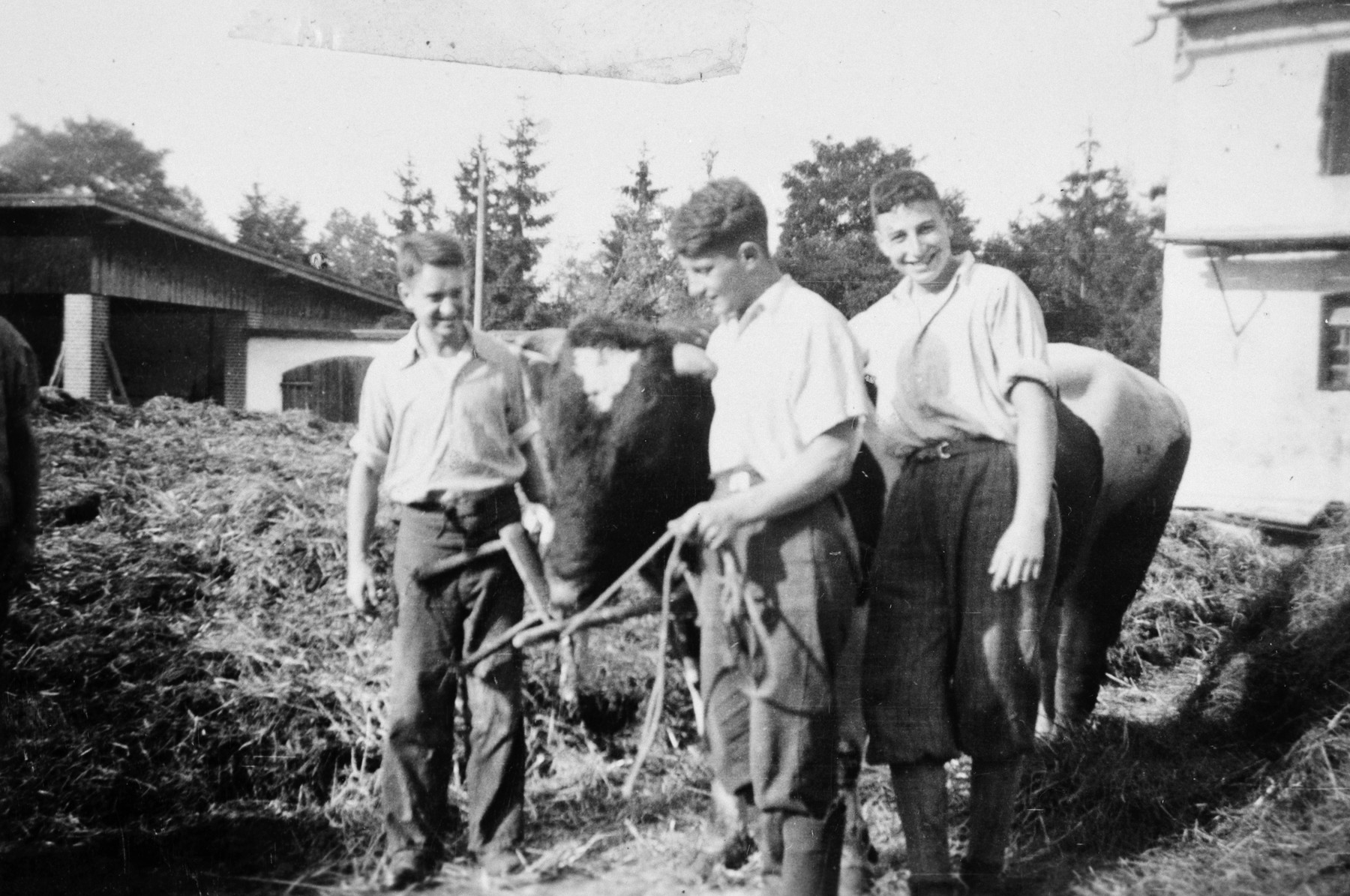Jewish Studies Event
Translating from Yiddish to English: Reclaiming Women's Voices
Feeling Jewish: Nostalgia and American Jewish Religion
Beyond the Mother Tongue: Learning Yiddish in America
‘Living on a Sort of Island’: Jewish Refugee Farmers in the American South
“‘Living on a Sort of Island’: Jewish Refugee Farmers in the American South” follows the wartime experiences of Jewish refugees who fled from Nazi Europe and attempted to become American farmers. The essay explores their acculturations within Jewish farming projects in the rural South, including the Georgia Farm School, Hyde Farmlands in Virginia, and the Van Eeden Settlement in North Carolina. I demonstrate how despite their romantic fantasies about farm life, farming proved to be an unsustainable career option for Jewish refugees. Most scholars have explained the relative dearth of American Jewish farmers as stemming from disinterest and inexperience with agricultural lifestyles.
Using the examples and perspectives of Jewish refugees, I argue that this theory is invalid because the farmers received substantial formal training and were committed to making their livelihoods away from metropolitan areas. Their inability to become American farmers is better explained through their social isolation and difficulties adjusting to a vastly alienating Southern culture. These lived experiences of Jewish refugee farmers reveal the shortcomings in America’s treatment of refugees, particularly concerning their social lives and psychological health. The essay further complicates overly triumphant narratives of the Jewish refugee experience that tend to overlook their hardships once safely on American soil.
Andrew Sperling is a third-year doctoral candidate at American University in Washington, D.C., where he studies American Jewish history. He is writing a dissertation about American Jewish communities responding to antisemitic extremism between the 1920s and the 1960s. His Luckens lecture, "'Living on a Sort of Island': Jewish Refugee Farmers in the American South," follows previous work related to Jewish refugees, which has been published in the peer-reviewed Southern Jewish History journal.
Susannah Heschel: "Ohavay Zion"
Susannah Heschel: "Ohavay Zion"
"The Israelite Samaritan Today: Past, Present and Looking to the Future."
Today’s Israelite Samaritans are ‘living history’, as we respect and observe our way of life and heritage. Through our sometimes difficult past, we have learned to coexist harmoniously with our neighbours, and we are a bridge for peace (gesher leshalom) between all peoples . We are the root of the Abrahamic religions in the region, including Samaritanism, Judaism, Christianity, Islam, and the Druze and Bahai faiths. Though rooted deeply in the past, we are a vibrant modern community with contemporary enterprises and interests. In March 1919 there were only 141 individuals, in Nablus and Jaffa. By September 2014, the Israelite Samaritan Community numbered 770 souls, divided into four households, all in the Holy Land. This talk will explore the past, present, and future of the Israelite Samaritan people.
Benny recently published "The Israelite Samaritan Version of the Torah: First English Translation Compared with the Masoretic Version" with Eerdmans Publishing.
"The Israelite Samaritan Today: Past, Present and Looking to the Future."
Today’s Israelite Samaritans are ‘living history’, as we respect and observe our way of life and heritage. Through our sometimes difficult past, we have learned to coexist harmoniously with our neighbours, and we are a bridge for peace (gesher leshalom) between all peoples . We are the root of the Abrahamic religions in the region, including Samaritanism, Judaism, Christianity, Islam, and the Druze and Bahai faiths. Though rooted deeply in the past, we are a vibrant modern community with contemporary enterprises and interests. In March 1919 there were only 141 individuals, in Nablus and Jaffa. By September 2014, the Israelite Samaritan Community numbered 770 souls, divided into four households, all in the Holy Land. This talk will explore the past, present, and future of the Israelite Samaritan people.
Benny recently published "The Israelite Samaritan Version of the Torah: First English Translation Compared with the Masoretic Version" with Eerdmans Publishing.
"The Israelite Samaritan Today: Past, Present and Looking to the Future."
Today’s Israelite Samaritans are ‘living history’, as we respect and observe our way of life and heritage. Through our sometimes difficult past, we have learned to coexist harmoniously with our neighbours, and we are a bridge for peace (gesher leshalom) between all peoples . We are the root of the Abrahamic religions in the region, including Samaritanism, Judaism, Christianity, Islam, and the Druze and Bahai faiths. Though rooted deeply in the past, we are a vibrant modern community with contemporary enterprises and interests. In March 1919 there were only 141 individuals, in Nablus and Jaffa. By September 2014, the Israelite Samaritan Community numbered 770 souls, divided into four households, all in the Holy Land. This talk will explore the past, present, and future of the Israelite Samaritan people.
Benny recently published "The Israelite Samaritan Version of the Torah: First English Translation Compared with the Masoretic Version" with Eerdmans Publishing.
